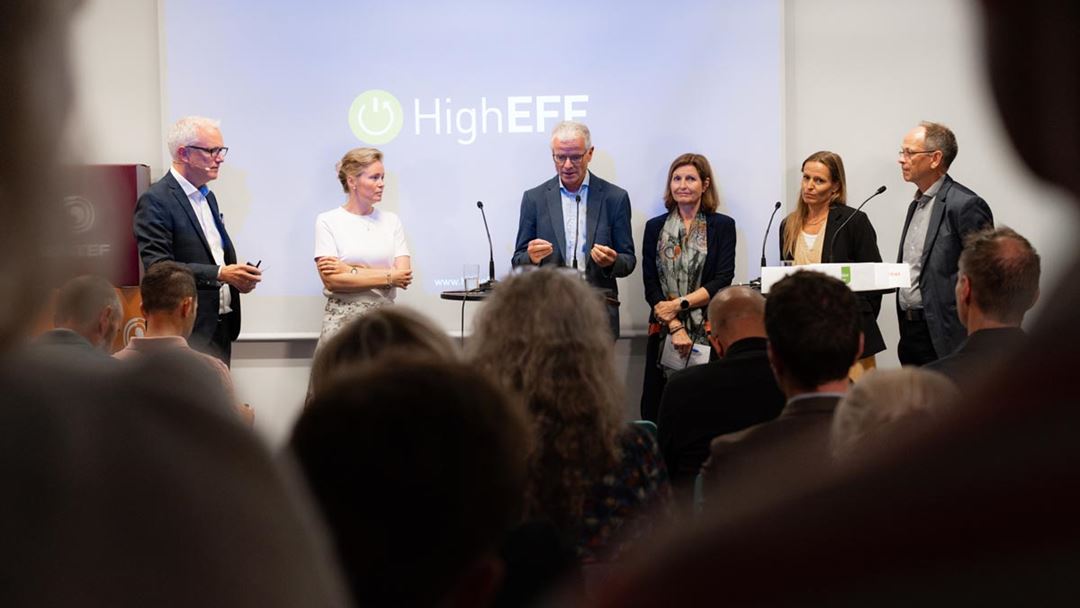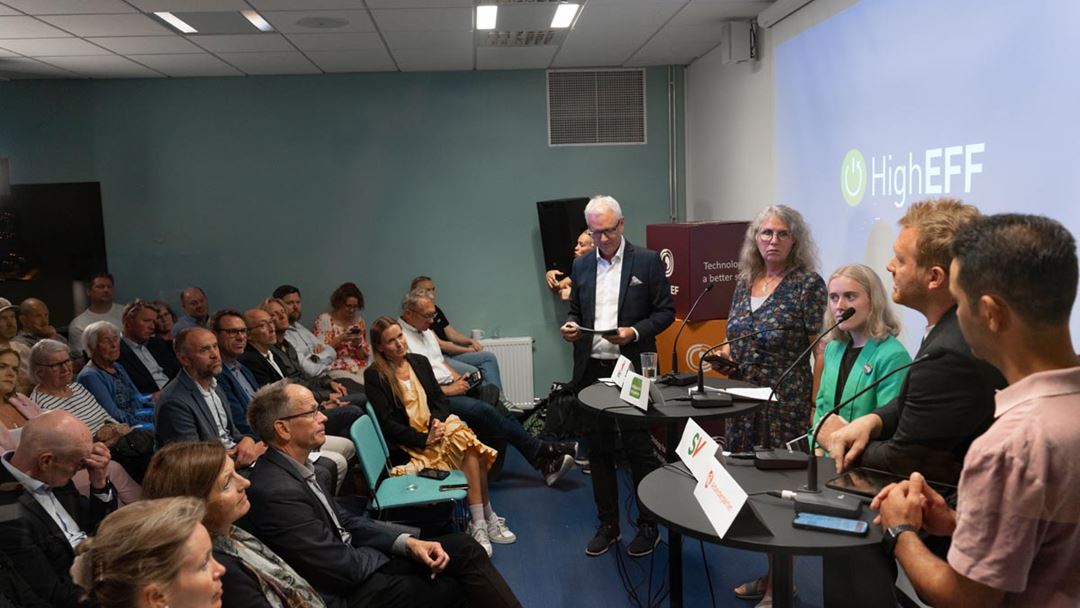Arendalsuka 2024: Harnessing energy efficiency
HighEFF had its own events at this year's Arendalsuka political festival.

The event focused on how Norway can meet the energy efficiency targets set at the last UN Climate Summit COP28 – targets which called for a doubling of the rate of energy efficiency improvements by 2030.
Centre director Petter Røkke started by giving the audience an overview of the industrial energy efficiency situation in Norway. Discussions then revolved around the implementation of more effective energy utilisation practices across both new and existing industries.
Lars Petter Maltby (Process21) emphasised the challenges of leveraging low-temperature surplus heat and called for broader collaboration across industries to achieve this. Stine Bjønnstu Holthe (Norsk Datasenterindustri) highlighted the role of data centers in driving energy efficiency, suggesting a joint effort to accelerate progress and learn from European neighbours.
Marianne Jenssen (Hydro Rein) showcased practical implementations, noting that simple solutions like switching to LED lighting at Hydro Vigelands Brug AS saved 90% in that facility's energy use linked to lighting. She pointed out the significant potential for energy conservation within the lighting of businesses and industries across Norway.
John Iver Bakken from Hafslund Celsio discussed the concept of district heating systems, which repurpose heat from various sources, including waste incineration and data centers, to where it is needed most. He suggested that building regulations may need to adapt to ensure buildings accommodate these systems.
Astrid Lilliestråle (Enova) acknowledged the industry's desire for predictability in the legal framework and subsidies surrounding energy efficiency. She also pointed out that Enova had the capacity to subsidise initiatives, but that industries had to step forward with projects.

The event was organised through a collaboration between FME HighEFF and Norsk Datasenterindustri, Enova, Hafslund Celsio, Process21 and SINTEF Energy Research.
Back to back with this event was an academic pitch by Cartesian, a spin-off of HighEFF, featuring the potential of thermal batteries to improve energy efficiency and reduce peaks in electricity demand.
